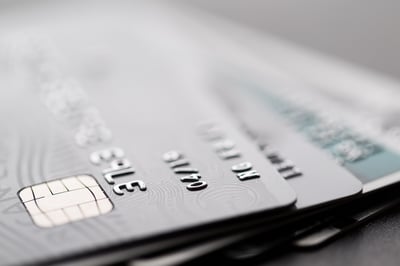Establishing Credit for the First Time
Terms and conditions you need to know

Having an excellent credit history is a great way to set yourself up for financial success. While it might seem ideal to operate debt free, it just isn’t an option in most scenarios. A good credit history will allow you to purchase a new car, buy a home, and pay for expenses that you don’t have liquid cash to cover. Most people begin their journey to an excellent credit history with a credit card, but there is a lot to know about credit cards before you take the plunge.
Secured vs. Unsecured
Secured cards are cards offered to people who are just beginning their credit journey or those who are trying to rebuild their credit. These cards require you to put down a cash deposit before you are issued the card. The amount you deposit becomes your credit line. Unsecured cards are cards that do not require a deposit. The credit limit can range from $300 (for those with limited credit history) up to tens of thousands of dollars for those with excellent credit history.
Interest Rates
One of the most important things to think about when taking on a new credit card is the interest rate. Interest rates can range from introductory 0% APR (these purchases carry 0% interest for a set period) up to 29% APR. People with high credit scores are offered more attractive APRs in most cases. The interest rate will be assessed each month on purchases that you’ve made. If you pay your bill in full before the due date each month, however, you can escape interest charges. When applying for a credit card, research the APR and the grace period for interest-free payments to understand the exact terms.
Fees
Every credit card has some sort of fees attached to it. Cards might have an annual fee, a balance transfer fee, foreign transaction fees, late payment fees or over-the-limit fees.
- Annual fees are fees charged on secured and some unsecured cards. It is a fee associated with keeping your card open. They can range from $35-$99 per year. The annual fee will be assessed when you open the card and every year after that.
- Balance transfer fees are fees associated with cards that allow you to transfer the balance from one credit card to another. Many people use this when they are interested in shifting the balance from a high-interest rate card to a lower interest rate card. The fee is generally between 3% and 4% of the amount you are transferring.
- Foreign transfer fees are fees assessed for purchases made while abroad. It is generally between 3% and 4% of the purchase price. If you do not travel abroad on a regular basis, this fee is not a concern.
- Late payment fees can range from $25-$50, depending on the card. They are fees added to your account when you fail to make a payment on time.
- Over-the-limit fees are fees that are added to your account if you utilize more credit than you’ve been extended by the issuer. When you open a card, you will be asked if you’d like to opt-in to over-the-limit purchases. It is best to opt-out. Purchases that bring your balance over your limit will be declined at the register if you opt-out, however.
How Do Credit Cards Affect Your Credit Score?
Credit cards can seem like a catch 22. You need credit to establish a credit history for large purchases, like a new car loan or a mortgage, but most people have heard the horror stories about credit cards sending them into financial ruin. Credit cards will affect your credit score, but that effect can either be good or bad.
Credit bureaus look at your payment history as the most important indicator of your creditworthiness. It is worth roughly 35% of your score. To maintain a good credit score, you’ll want to make all of your payments on time. You can set up automatic payments to your credit card to ensure you are making on-time payments.
Credit bureaus also look at your credit utilization. Credit utilization is the percentage of your credit you are using at any given time. Most experts suggest keeping credit utilization below 30%. If you have a $1,000 credit limit, you should not be utilizing more than $300 of that limit. Your credit utilization is a calculation based on all of your revolving credit card accounts. Credit utilization comprises 25% of your score.
Your FICO score will also look at the length of your credit history. The length of your history is just what it sounds like; it is the length of time you’ve had open accounts. It comprises about 15% of your credit score. This factor takes time. It is suggested that you keep your cards open, even when you are not using them on a regular basis to extend the length of your credit history.
The type of credit you are using also matters. Comprising about 10% of your score, a mix of different credit types is considered more attractive than the utilization of a single kind of credit. Your credit may be comprised of credit cards, student loans, new car loans, personal loans, and mortgages. If you are starting out your credit will likely only be comprised of credit cards and student loans. This is okay.
Now that you know the basics of credit cards, you can begin your journey to an excellent credit history. Before you take on credit card debt, do more research and figure out a budget that makes the most sense for you and your financial situation.
